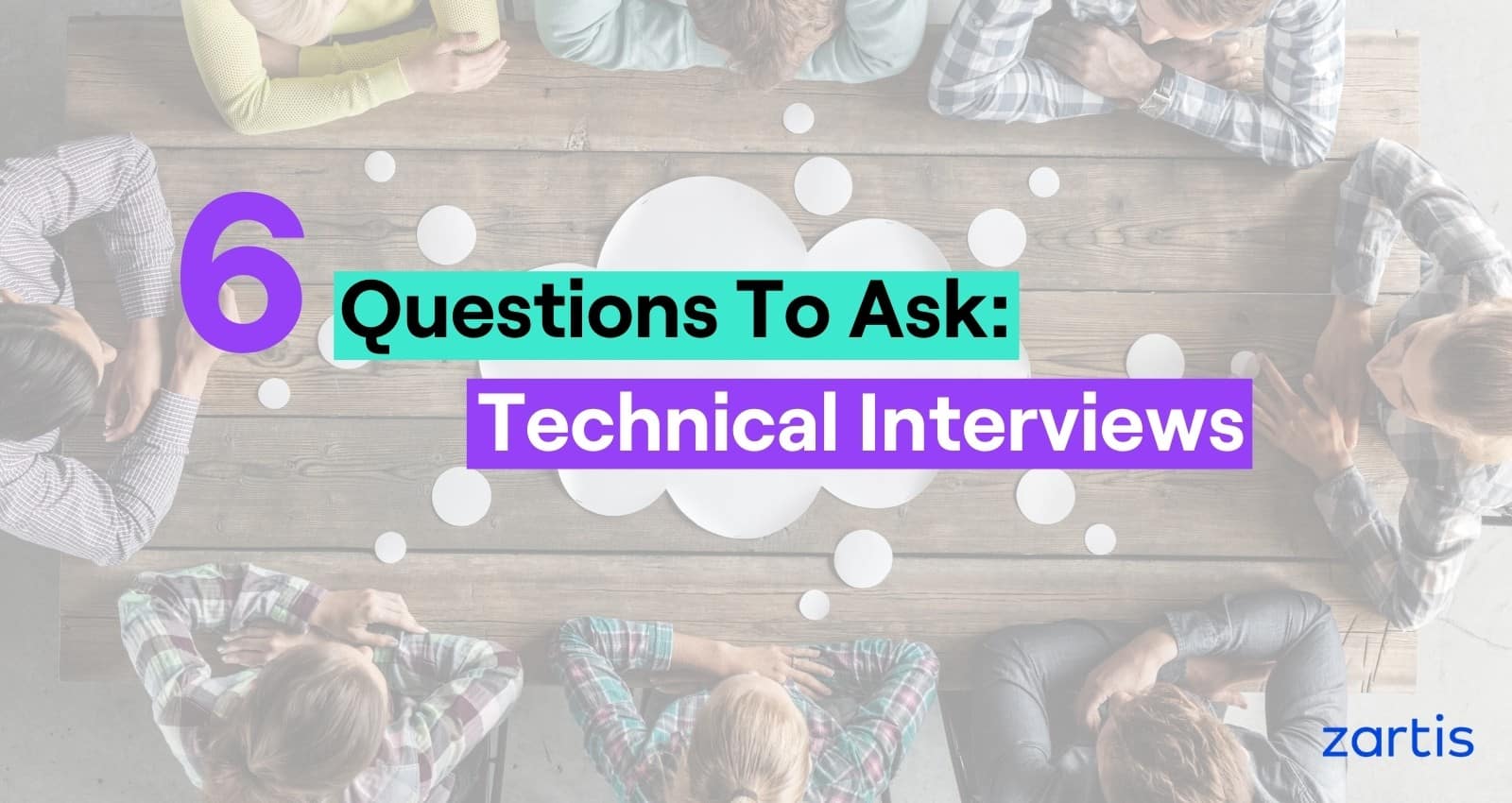You’ve sailed through all the software development questions and impressed the panel with the details of your tech career to date. Whether you are interviewing for an in-house position or to join an outsourced software development team, you have one more chance to show them that you are the right person for the job.
Now, the interviewers want to know if YOU have any questions for THEM. Instead of mumbling something about how you think they’ve told you everything you needed to know, view this as an opportunity to seal the deal and show them you not only understand their company, but you’re engaged enough to find out more. This is the final interview, so you are most probably speaking to a high-ranking team member or the CTO and they will expect you to have at least one or two questions. It’s always good to have something in reserve, because there’s a chance that they’ll have answered some questions before you can ask. Here are some questions that can help you nail a tech interview and impress the company with your interest and comprehension of their business.
How would you define success in this role? What would be the key indicators to you that you hired the right person?
This shows you’re already thinking in terms of high performance, and the interviewer(s) answer should help you establish what their expectations are / what is the company culture like / are there any skills or responsibilities you need to focus on. You also get the opportunity to respond with how you’d be a great fit for them, based on what they’ve just said.
And, having some talking points ready never hurts. Check out this article on ‘5 Habits of Highly Successful Software Teams’ and you may get an idea of their expectations upfront.
What are the biggest challenges and opportunities facing the company/team at the moment?
Asking something like this helps show your motivation to make a positive contribution from the get-go. It also helps you find out what’s likely to be the main focus for your first few months at the company. By asking about any challenges, you’re opening up an opportunity for yourself to tell them how you can contribute.
What would a typical day/week for someone in this role look like?
Speaks for itself – it’s a good way to find out if the job description is really as interesting as the hiring manager suggests. It also shows you care about the quality of your work day.
If you are going to work remotely, you can make some comments that will show them your ability to succeed remotely.
How does this role/team/department fit into the organisation’s structure overall?
By asking how and where you’d fit in and how your contribution affects the rest of the company, you’re showing interest in the business itself and an appreciation of how your work contributes to the company’s overall success.
If you are interviewing with a software services provider, you can, instead, ask how important the client project you will work on is to the success of the business, the expected longevity and scale of the project.
What does the onboarding process look like?
This question applies for both in-house job opportunities but also for outsourcing companies. A good tech employer would have a plan in place. Having a strong onboarding process helps you get productive quickly and as smoothly as possible. By asking this, you can show you are aware there will be an onboarding phase and eager to get past it and start working on the product.
Is there anything you’d like more clarity on?
Are there any reservations you’ve got that I could address or skills you’d like me to expand on?
No point in waiting until you’ve received a rejection call to find out you should have told the employer more about your people management or in-depth Javascript skills. It can be a little daunting to come straight out and ask an interviewer what, if any, reasons they can think of not to hire you. So, this slightly less in-your-face approach gives you the chance to save yourself from any oversights or misunderstanding.
Bonus Question:
What aspects of working here excite you the most?
This is a good way for you to get a sense of company/team culture and what your prospective manager might be like to work with. It also helps you to figure out if you really would be the right fit – if the hiring manager raves on about something you usually find pretty mundane, it might be a sign this team isn’t for you.
Conclusion:
Whether you will work on-site or remotely, as part of an in-house or outsourced team, it is crucial to take these questions with a grain of critical thinking. Make sure to adjust them for the company’s structure, business model and what has already been discussed in the interviews..
Check out their products or services – and make sure you prepare questions around the product, tech stack, the way they work and the team is structured.
In addition to these more general question ideas, take the time to prepare technical questions for enthusiasts trying to find a software developer job as well.
Good luck on your technical interview!
—
Do not forget to check out our careers page and drop us a line if you are a software developer working out of Spain, Portugal, or Poland!


